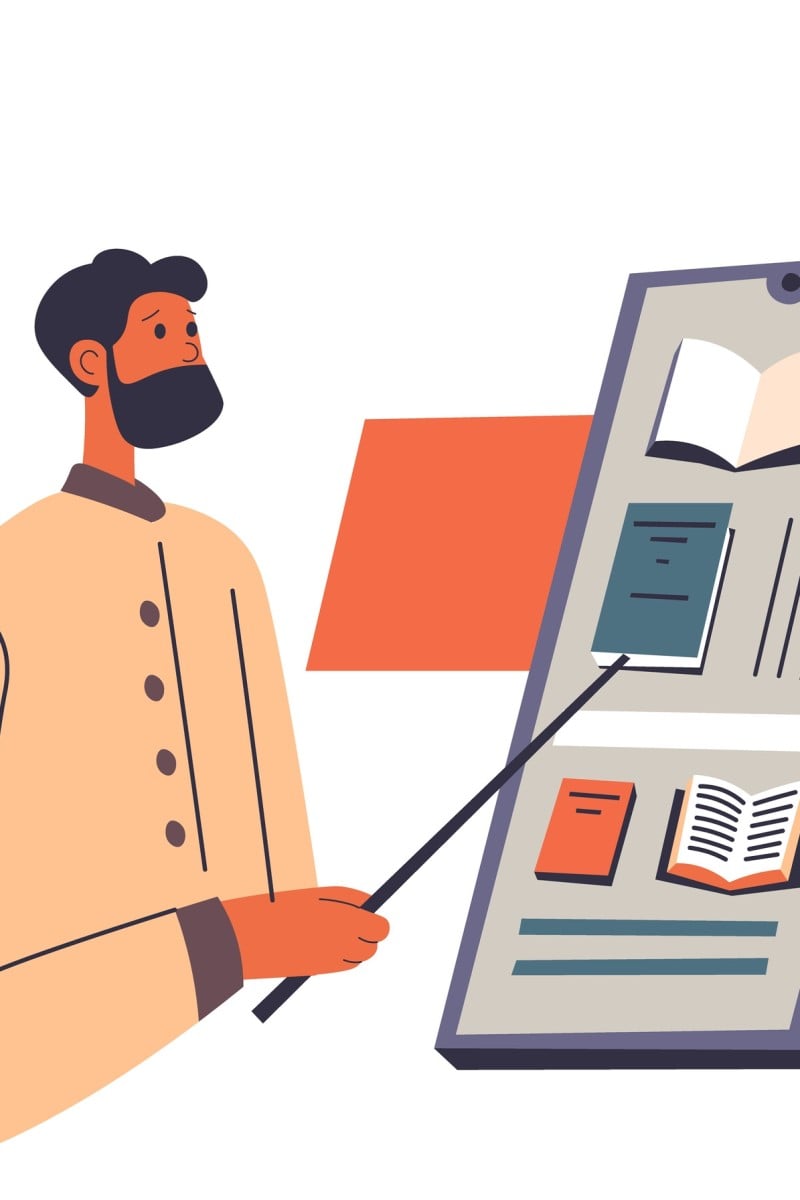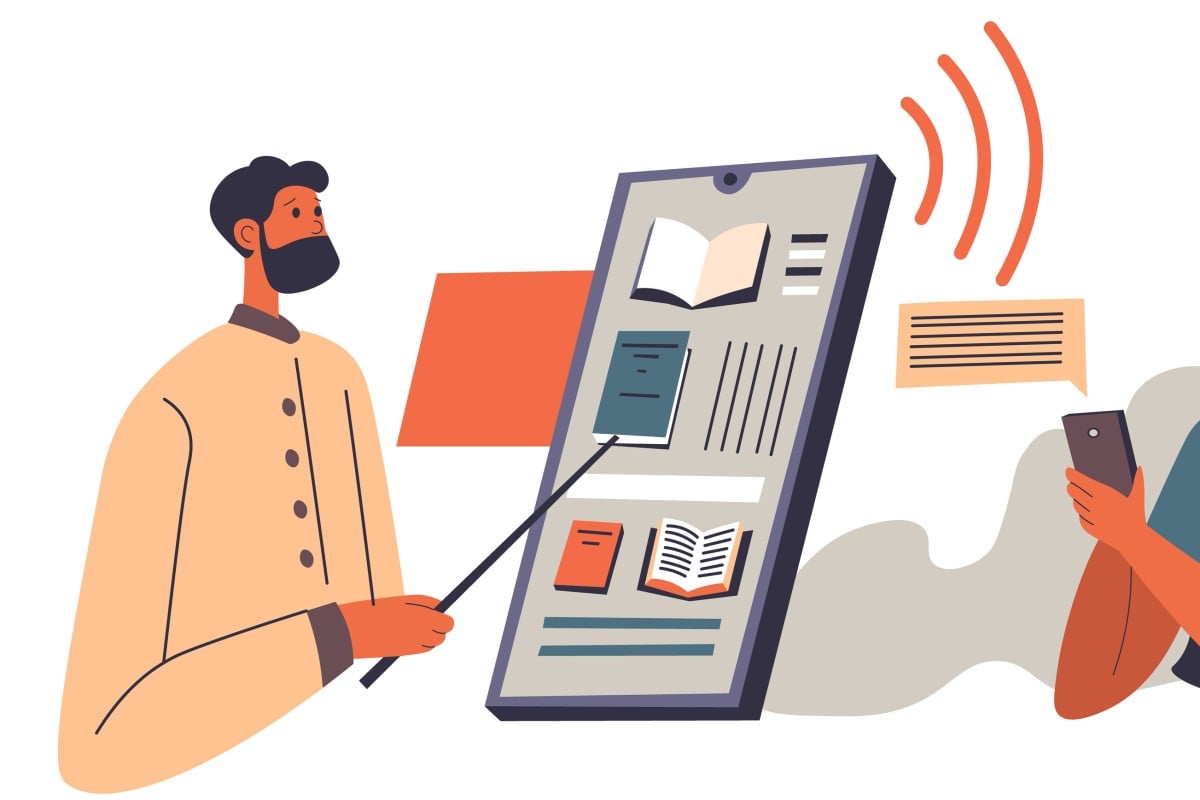
Face Off: Should teachers have the power to monitor students’ personal devices during school hours?
- Each week, two readers debate a hot topic in a showdown that doesn’t necessarily reflect their personal viewpoints
- This time, they discuss whether teachers should be able to see what students are doing on their phones and tablets while at school
 Should teachers have the ability to monitor students’ phones and tablets while at school? Photo: Shutterstock
Should teachers have the ability to monitor students’ phones and tablets while at school? Photo: ShutterstockIf you are interested in joining future Face Off debates, fill out this form to submit your application.
For: Heer Donda, 14, King George V School
The youth are becoming increasingly attached to their personal devices. Whether they are scrolling on Instagram for hours or binge-watching a show through the night, devices take up a significant amount of time in a student’s day.
According to health content website Fortune Well, teenagers spend an average of over eight hours a day on screens. This is more than a third of their entire day.
Therefore, I believe numerous factors indicate that a teacher should have the right to supervise student devices during school hours.
Many students consider their teacher to be their “second parent”. With this position, they should have the right to get rid of a distraction that hurts the academic performance of their students.
Should parents use devices to track where their children are at all times?
A student’s education is ultimately primarily a teacher’s responsibility; therefore, they automatically deserve the right to act against interference.
Time spent in school should be dedicated to learning. Personal devices are known to be a form of distraction that affects education. Some students may not be distracted but they are not the majority.
Education news content provider Education Week states that about 54 per cent of students get distracted by their peers using devices. To allow for success, an adequate and focused learning environment should be maintained.
We are also becoming aware of the features of the internet and the tremendous issues that artificial intelligence can create. City University of Hong Kong states that plagiarism takes away the “opportunities to think, learn and discover”. As students begin to make use of devices more often, it gradually increases their reliance on them and reduces their ability to think with originality.
If they are monitored, teachers would be able to understand their students better and help them grow as individuals. Students should also be able to understand the boundaries of devices and know how to use them appropriately. As technology advances further, the coming generations will unquestionably become more reliant on devices. However, the actions taken now can help prevent issues in the future.
Against: Valerie Chiu, 14, St Mary’s Canossian College
Monitoring students’ personal devices is intended to ensure students are using them for learning purposes and to check their progress. Yet, privacy concerns make this monitoring unfair and unwise.
Since the devices belong to the students, some of them believe teachers lack the right to access and examine what they are doing online. Students may feel like they are constantly being watched and judged and that they lack the autonomy to use their devices in school. Thus, this hampers the trust between teachers and students, creating a hostile learning environment. There is also some potential for discrimination in monitoring practices. Teachers can unintentionally or unfairly target certain students for their device usage. This can lead to feelings of resentment, further creating a negative classroom dynamic.
Furthermore, monitoring students’ devices hinders them from learning to use them wisely and independently. Students should have the autonomy to manage their own device usage and learn how to use technology responsibly.
By constantly monitoring their devices, teachers are not allowing students to develop important skills such as self-regulation and time management.
Besides, teachers should not make assumptions about what students are doing. For example, they can be browsing educational posts on social media or using a chatbot to delve deeper into a topic they do not understand.
Teachers should focus on building positive relationships with students and providing learning opportunities that promote active participation and collaboration.
By setting clear expectations and establishing a positive classroom culture, the overwhelming majority of students will regularly meet expectations without the need for monitoring.
Instead of relying on teachers to constantly monitor students’ personal devices, schools can implement technology solutions such as filtering apps to block access to potentially harmful or distracting websites. This way, students can still have some level of autonomy while being protected from inappropriate content. It is also a more efficient and automated approach.
